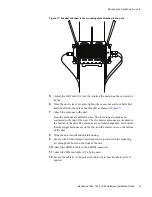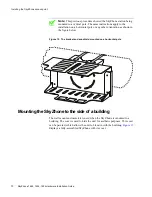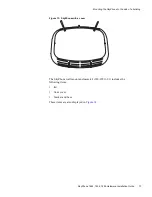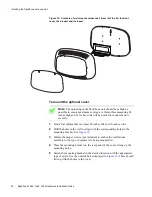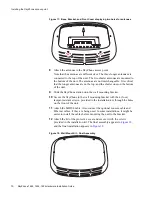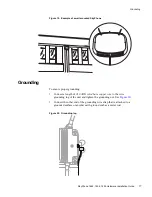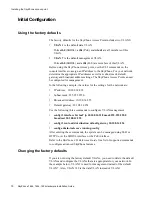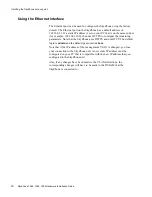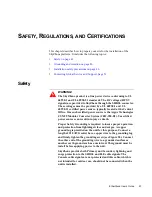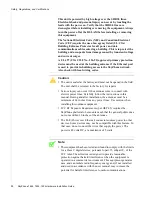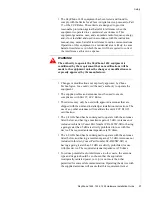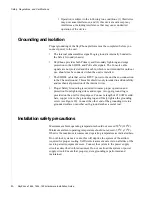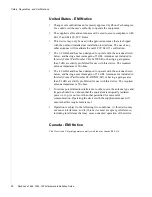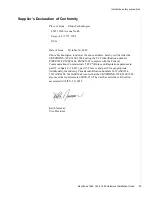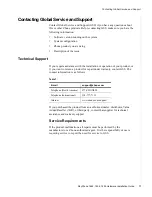
Safety
SkyZhone 1624, 1424, 1224 Hardware Installation Guide
45
•
The SkyZhone-1424 equipment has been tested and found to
comply with the limits for a Class A digital device, pursuant to Part
15 of the FCC Rules. These limits are designed to provide
reasonable protection against harmful interference when the
equipment is operated in a commercial environment. This
equipment generates, uses, and can radiate radio frequency energy
and, if not installed and used in accordance with the instruction
manual, may cause harmful interference to radio communications.
Operation of this equipment in a residential area is likely to cause
harmful interference in which the user will be required to correct
the interference at his own expense
WARNING!
The authority to operate the SkyZhone-1424 equipment is
conditioned by the requirement that no modifications will be
made to the equipment unless the changes or modifications are
expressly approved by the manufacturer.
•
Changes or modifications not expressly approved by Zhone
Technologies, Inc. could void the user's authority to operate the
equipment.
•
The supplied cables and antennae must be used to ensure
compliance with Part 15, FCC Rules.
•
This device may only be used with approved antennae that are
shipped with the unit and installed per installation instructions. The
use of any other antennas will invalidate the unit's FCC Part 15
certification.
•
The 2.4 GHz band has been designed to operate with the antennae
listed below, and having a maximum gain of 5 dBi. Antennae not
included in this list (Comet Part Number CFA-245W-SR) or having
a gain greater than 5 dBi are strictly prohibited for use with this
device. The required antenna impedance is 50 ohms.
•
The 4.9 GHz band has been designed to operate with the antennae
listed below, and having a maximum gain of 5.3 dBi. Antennae not
included in this list (Comet Part Number SF-D49NW-SR) or
having a gain greater than 5.3 dBi are strictly prohibited for use
with this device. The required antenna impedance is 50 ohms.
•
To reduce potential radio interference to other users, the antenna
type and its gain should be so chosen that the equivalent
isotropically radiated power (e.i.r.p.) is not more than that
permitted for successful communication. Operating the device with
the supplied antennas will ensure that this requirement is met.

